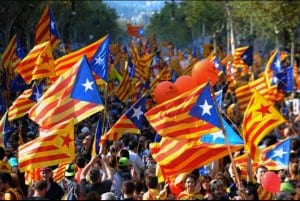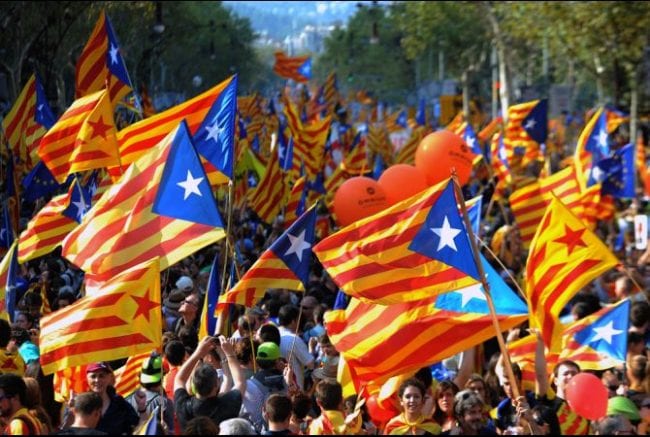 CATALONIA’S parliament has passed a law paving the way for an October 1 referendum on whether to declare independence from Spain, which is being fiercely opposed by the central government.
CATALONIA’S parliament has passed a law paving the way for an October 1 referendum on whether to declare independence from Spain, which is being fiercely opposed by the central government.
The ‘referendum bill’ was adopted on Wednesday by the regional parliament with 72 pro-independence party votes in favour and 11 abstentions.
Politicians who oppose independence for Catalonia left the chamber before the vote.
Head of the Catalan branch of the conservative Popular Party, Xavier Garcia Albiol accused the separatist politicians of wanting to cause Spain’s ‘biggest institutional crisis’ since a failed coup attempt in 1981 when armed civil guards took over parliament.
Catalonia, a region of 7.5 million people with its own language, accounts for about 20% of Spain’s economic output and has a degree of autonomy on matters such as education, healthcare and welfare.
But Spain’s fiscal pressures, coupled with a perception that the region pays more in taxes than it receives in investments and transfers from Madrid, have shaped the cause for secession as a pivotal agenda.
If the referendum goes ahead more collisions with the national government will follow as they argue that any attempt to break away from Spain is illegal and will not be recognised.
The state legislature move is important to set out the legal path for the referendum.
Catalonian President Carles Puigdemont is expected to sign the measure into law either Wednesday or Thursday.
However, the Constitutional Court of Spain is expected to review the law this week and declare it null and void, as it has done in the past.
Should the referendum take place and yield a majority for seceding, supporters say they would break away from Spain ‘within two days’.
Spanish Prime Minister Mariano Rajoy said there is no way he would allow the economically important region to break away.
“The Catalonians cannot carry out this referendum as planned because they are not allowed to do so either by the Constitution or existing law,” he said.
Under the Spanish Constitution, referendums on sovereignty must be held nationally, not regionally and Madrid has the power to intervene directly in the running of Catalonia’s regional government, forcing it to drop the vote.
In 2014, months after Scotland voted to stay in the UK, pro-independence campaigners staged a symbolic ballot, was signed by two million people in favour of secession, though turnout was low.
Click here to read more News from The Olive Press.








